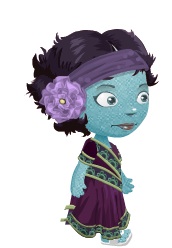This quote has been making the rounds again:
“User feedback is bad at telling you what to build. It’s great at telling you what you fucked up” – Phil Libin, CEO of @Evernote
I haven’t actually been able to find the quote in context, so I hope that Libin isn’t as ignorant about what user research brings to the table as he sounds in this Twitter-sized quote.
It appears to be making the mistake of assuming that gathering user feedback is the same as doing user research. They’re different beasts. It’s not difficult to show users something and get feedback on it. User research is more than just showing something to people, writing down what they say or did, and then going back and telling people about that.
Feedback doesn’t just tell you “what you fucked up”. If you think that’s all that you’re hearing in your user feedback, then you’re not listening to your feedback. You’re only hearing part of the message in the feedback. Don’t just take your feedback at face value. Take the time to analyze it and understand it. You’ll learn a lot about what you got right and what you got wrong. If your users perceive that you got something wrong, then you’ve got to decide what to do about it. I wrote a post about feedback and constructive criticism awhile ago that covers a lot of this.
Feedback also can tell you what to build. By hearing what works and what doesn’t work from your users, you have the seeds of inspiration for building the next big thing. It might or might not be related to what the feedback was actually about, but that’s the beauty of the human experience: every interaction we have impacts us, and it all comes together sometimes in ways that we can’t explain when we have that sudden insight that tells us what to build next.
But feedback isn’t everything. Feedback is just a teensy subset of user research, and I sincerely hope that anyone who is CEO of a company knows that. User research can tell you what to build. The research that you do when you need to figure out what to build isn’t as neat or easy-to-conduct as the formative research that you need to do when you’re trying to figure out what to build, but it can lead to that lightbulb moment where you figure out what’s next. If you don’t know what this entails, go find an awesome user researcher (hi) and ask.
